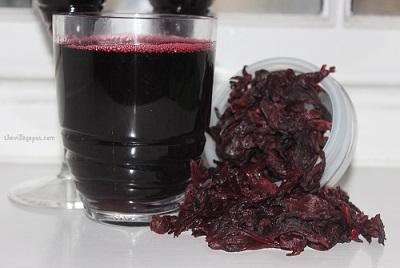Health
Nigerian Physicians Of Natural Medicine Elect New Officials
Published
2 years agoon
By
Editor
The Nigerian Association of Physicians of Natural Medicine (NAPNM), has elected executives to run its affairs for the next three years.
The election which took place on 30 August, 2022, both virtual and in-person at the national secretariat of the Nigeria Union of Journalists (NUJ), Abuja, was headed by Dr. Joseph Akpile.
Speaking at the event, Akpile noted that the election was in line with relevant articles of the Association on election matters and in compliance with the various resolutions leading to the election and adopted by the majority members at the General Assembly.
Those elected included Hon. (Dr.) Johnson Elechi (National President), Dr. Sanusi Ahmed (Vice President), Dr. Usman Chiroma (Secretary), Dr. (Barr) Austin Bona (Assistant Secretary) and Dr. Mrs. Funmilayo Onipisaye (Treasurer).
Others are Dr. BL Dickson (Financial Secretary), Prof. Lawrence Ugo (Public Relations Officer), Dr. Saye Onipisaye (Auditor), Dr. (Mrs) Etta Chinwe (Welfare Secretary), Dr. Itoto Clement and Salihu Idris Baba (Research Secretaries respectively).
In his acceptance speech, Dr. Elechi who promised an all-inclusive administration, said that the task of his administration included repositioning the profession, ensure the passage of the FEDCAM Bill and the TCAM Bill and rebranding the profession for integration into all levels of Healthcare system in Nigeria.
READ ALSO: How God Healed Me Of Paralysis – Tim Godfrey
“This administration will continue to up grade the training and competency of members through regular training, we are inaugurating the Nigeria Postgraduate College of Natural Medicine.
“This administration will operate a National Secretariat in Abuja, Zonal offices in the 6 geopolitical zones of the Country and support states to do so in their states,” he said.
Meanwhile, the National President of NAPNM, Hon. (Dr.) Johnson Elechi, has announced the commencement of an annual memorial lecture and Prof. Atilade Leadership Award, in honour of the late national leader of the Association, Prof. Magnus Adeyemi Atilade, for his role in the defense of natural medicine.
The lecture coincides with the annual African Traditional Medicine Day celebration.
“To mark the annual celebration of ATM Day for this year, we consider it a good day to celebrate our Leader late Prof. M. A. Atilade for his role in championing our freedom from medical oppression in Nigeria.
“In celebrating this year’s ATM day, we are instituting an annual memorial lecture for our leader late Prof. Magnus Adeyemi Atilade as part of the celebration,” Elechi said.
This year’s ATM Day has as its theme: “Two decades of African Traditional Medicine Day: Progress towards achieving universal health coverage in Nigeria.”
READ ALSO: Ondo Beefs Up Security In Parks, Urges CCTV
Five distinguished members of the Association, Hajia Zainab Sherrif, Prof. Baderinwa Adewale, Prof. Gilbert Ezengige, Prof. Ibrahim Afonja and Dr. Bankkadejo Adedamola, were honored with this year’s Prof. Atilade Leadership Award.
You may like

By Silver Yeibake
Autism, commonly known as Autism Spectrum Disorder (ASD), is a neurodevelopmental disorder that affects communication, social interaction, and behavior. Autism is referred to as a spectrum condition since it can manifest in a variety of symptoms and abilities. While the actual cause of autism is unknown, evidence suggests that genetic and environmental factors interact to influence its development.
The risk factors include a sibling with autism, advanced age of parents, exposure to certain air pollutants and pesticides before birth, extreme prematurity, mothers with diabetes, immune system disorders or obesity, any difficulty with delivery leading to deprivation of oxygen to the baby’s brain, fever during pregnancy, lack of certain vitamins minerals during pregnancy, and certain genetic conditions, such as Down, fragile X, and Rett syndromes.
“Risk factors can not on their own cause a disease. However, they can increase the likelihood of that disease in a person.”
It is important to know that contrary to trending claims online, there is no scientific or medical evidence that vaccines or consumption of sugar are risk factors for autism.
READ ALSO: Kidney Stones: What You Need To Know
Autism is defined by difficulties in social interaction and communication. Individuals with autism may struggle to grasp social cues, maintain eye contact, and engage in typical back-and-forth conversations. Some people may also engage in meaningless, repetitive actions, such as hand-flapping or rocking, and have strong interests in specific areas.
It is essential to remember that autism is a lifelong diagnosis, but with early intervention and adequate care, people with autism can live fulfilling lives.
Autism treatment frequently includes behavioral therapy, speech therapy, occupational therapy, and social skills training. Each individual with autism is unique, thus interventions should be tailored to meet their personal needs and strengths.
In spite of the difficulties that autism can cause, many people with autism possess unique talents and abilities. Some people may succeed in fields such as music, art, mathematics, or programming, thus it is important for society to acknowledge and honor the qualities and achievements of people with autism.
In summary, autism is a complicated and diverse disorder that affects individuals in various ways. By raising autism knowledge, understanding, and acceptance, we can build a more inclusive society in which people with autism can thrive and attain their full potential.
Dr. Yeibake, Weriwoyingipre Silver.
Senior Registrar,
Faculty Of Pediatrics,
WACP
Health
Don Confirms ‘Zobo’ As Antihypertensive Therapy
Published
1 month agoon
March 10, 2024By
Editor
The Deputy Vice Chancellor, University of Nigeria Enugu Campus, UNEC, Prof. Daniel Nwachukwu, after research findings and clinical trials in both animals and human, has confirmed that Hibiscus Sabdariffa, popularly called ‘zobo’ drinks, has all the curative potentials as an antihypertensive therapy.
Nwachukwu, who is a Professor of Cardiovascular Physiology in the university, stated that the antihypertensive effectiveness of the Hibiscus Sabdariffa (zobo) was comparable to those of known antihypertensive drugs that are popular in the retail pharmacies, adding that zobo’s availability, cheapness and absence of side effects make it attractive as an alternative therapeutic agent in mind to moderate hypertensive subjects.
He however cautioned that care should be applied to avoid abuse in the consumption of Hibiscus Sabdariffa (zobo), adding that the therapy could interfere with some anti-malaria drugs while its high dose was also reported to have toxic effects on the liver and kidney.
READ ALSO: How Airline Pilots Fell Asleep Mid-flight – Safety Agency Reveals
Nwachukwu’s discoveries were contained his 201st Inaugural Lecture of the University of Nigeria with the topic “The Marriage Between the Cardiovascular System and Hibiscus Sabariffa: Let no One Put Asunder,” delivered at the moot court hall, Law faculty of the University of Nigeria, Enugu campus.
The DVC warned that Hibiscus Sabariffa consumption is not recommended for persons with low blood pressure because of its well established hypotensive action, advising that during combined therapy with antihypertensive drugs, the blood pressure, BP, must be carefully monitored.
He recommended that industrialists and investors should support large scale production of Hibiscus Sabariffa beverage and its distribution to rural communities in Nigeria, particularly since the raw materials (Hibiscus Sabariffa calyx and water) are cheap and readily available.
READ ALSO: Man Stabs Two Women To Death At A Mexico Varsity
According to Nwachukwu, “This lecture is intended to draw the public attention to our research efforts and unveiling the antihypertensive ability of Hibiscus Sabariffa which is called zobo in our common parlance. What we used for our studies was the same concentration as the locally produced zobo, and we found out that it exerted significant antihypertensive ability, in some cases even higher than the antihypertensive drugs and also did combination therapy with other antihypertensive drugs.
“What is significant is that this zobo is within us, it’s very cheap and it does not have any side effects compared to other antihypertensive agents. The raw material is just to buy zobo, prepare it under hygienic conditions, boil water and put it, sieve it and drink. It may have a sour taste but we do not encourage people to add things like pineapple or sugar in order to make it sweet, because once you do that, you are diluting or reducing its antihypertensive effectiveness.
“We have demonstrated it, both in animal studies and in humans. We are the first to do clinical trials, using mild to moderate antihypertensive Nigerians and we found it very useful. Some of the results show that one can actually use it and we equally saw that you can use it to prevent even diabetes from occurring because it reduces the rise in glucose level.”
READ ALSO: Adolescent Girls Face Risks Of Sexual Violence – UNICEF
Vice Chancellor of the University, Professor Charles Igwe while summarizing the lecture said that the lecture was in three dimensions; one on health grounds, another in academics and the third an economic value.
“Its economic in the sense that we can also begin to use what God has given us to make money. Maybe because God gave us everything in abundance in this country, we don’t recognize the simplest things God gave us in our environment. Therefore, what we are saying is that we should begin to, at all these pure water productions and incorporate zobo production so as to make money out of it.
“The university has made its contribution through our laboratories and it’s now left for the business community and the industries to come and buy into it and start widening it and make it very economic,” Igwe suggested.
Vanguard

By Silver Yeibake
Hi, did you know that Tuesday 12th March, 2024 is world Glaucoma day?Kindly avail yourself of this opportunity to learn about this important health issue as presented below:
Glaucoma is a dangerous eye disorder that damages the optic nerve, causing visual impairment or permanent blindness if not treated.
The optic nerve transmits visual information from the eye to the brain. Damage to this nerve might cause gradual visual loss that is not immediately obvious.
Worldwide, this disease affects 67 million people and contributes 6.7 million of blindness in this population. Glaucoma is the leading cause of blindness in the world.
The total number of cases is expected to increase to 111 million by 2040. Males are slightly more affected than females.
One of the basic causes of glaucoma is an increase in intraocular pressure (pressure within the eyeball), which can eventually damage the optic nerve (the nerve that makes seeing possible). This increase in pressure could be caused by an accumulation of aqueous humor, the fluid that nourishes the eye.
FROM THE AUTHOR: Food Poisoning: What You Need To Know
There are several forms of glaucoma, including open-angle glaucoma, angle-closure glaucoma, normal-tension glaucoma, and secondary glaucoma, each with unique characteristics and treatment choices.
Some of the risk factors for glaucoma include sustained elevation of intraocular pressure, family history of glaucoma, race (African, Asian), short-sightedness, long-sightedness, age over 50, previous eye injury or surgery, hypertension, diabetes mellitus, migraines, and prolonged steroid therapy.
Glaucoma symptoms may not appear until the problem has advanced sufficiently, therefore regular eye checks are essential for early detection. Blurred vision, eye pain, nausea, and light halos are some of the most frequent glaucoma symptoms. However, these symptoms might be mild or readily misinterpreted as other eye problems, emphasizing the significance of regular eye examinations.
Glaucoma treatment tries to reduce intraocular pressure and protect the optic nerve from further damage. This can be accomplished using a variety of approaches, including prescription eye drops, oral medicines, laser therapy, and surgical procedures. Treatment options are determined on the kind and severity of glaucoma, as well as personal characteristics such as overall health and medical history.
To summarize, glaucoma is a serious eye disorder that requires timely diagnosis and treatment to prevent irreversible vision loss. Regular eye examinations, early detection, and commitment to treatment plans are critical for protecting vision and eye health in glaucoma patients.
Thank you.
Dr. Yeibake, Weriwoyingipre Silver, a
Senior Registrar, Faculty Of Pediatrics, West Africa College of Physician (WACP), writes from Yenagoa, Bayelsa State.

Nigeria Air: EFCC Arrests Ex-Buhari’s Minister Over N8bn Fraud
BREAKING: EFCC Freezes Over 300 Accounts Over Suspicious FX Flows

BREAKING: EFCC Chair Vows To Follow Yahaya Bello’s Prosecution To Conclusion
Trending

 News5 days ago
News5 days ago‘Have Some Conscience’ – Lady Tackles Salvation Ministries Founder, Ibiyeomie, Over 20% Of Salary As Offering Preaching [VIDEO]

 News5 days ago
News5 days agoAPC Debunks Viral Video, Says Presidency Not After Ganduje

 Metro5 days ago
Metro5 days agoPolice Rescue Three Toddlers Locked Up In Lagos Home

 Entertainment21 hours ago
Entertainment21 hours agoBridesmaids’ Dance At Wedding Causes Stir On Social Media [VIDEO/PHOTOS]

 Politics2 days ago
Politics2 days agoEdo Guber: Akoko-Edo PDP Leaders Meet In Igara, Describe Ighodalo, Ogie As ‘Perfect Match’

 Headline4 days ago
Headline4 days agoBest Airports In Africa For 2024 Named, Nigeria Missing [Full List]

 News3 days ago
News3 days agoFoundation Advocates Empowerment Of Women, Youth In Nigeria

 Metro4 days ago
Metro4 days agoBREAKING: Protests As Gunmen Kill 12 In Plateau Village

 Headline5 days ago
Headline5 days agoUPDATED: Defence Chief, Nine Others Die In Kenya Military Helicopter Crash

 Metro21 hours ago
Metro21 hours agoVIDEO: ‘UNN Lecturer’ Caught Pants Down With Married Student

























